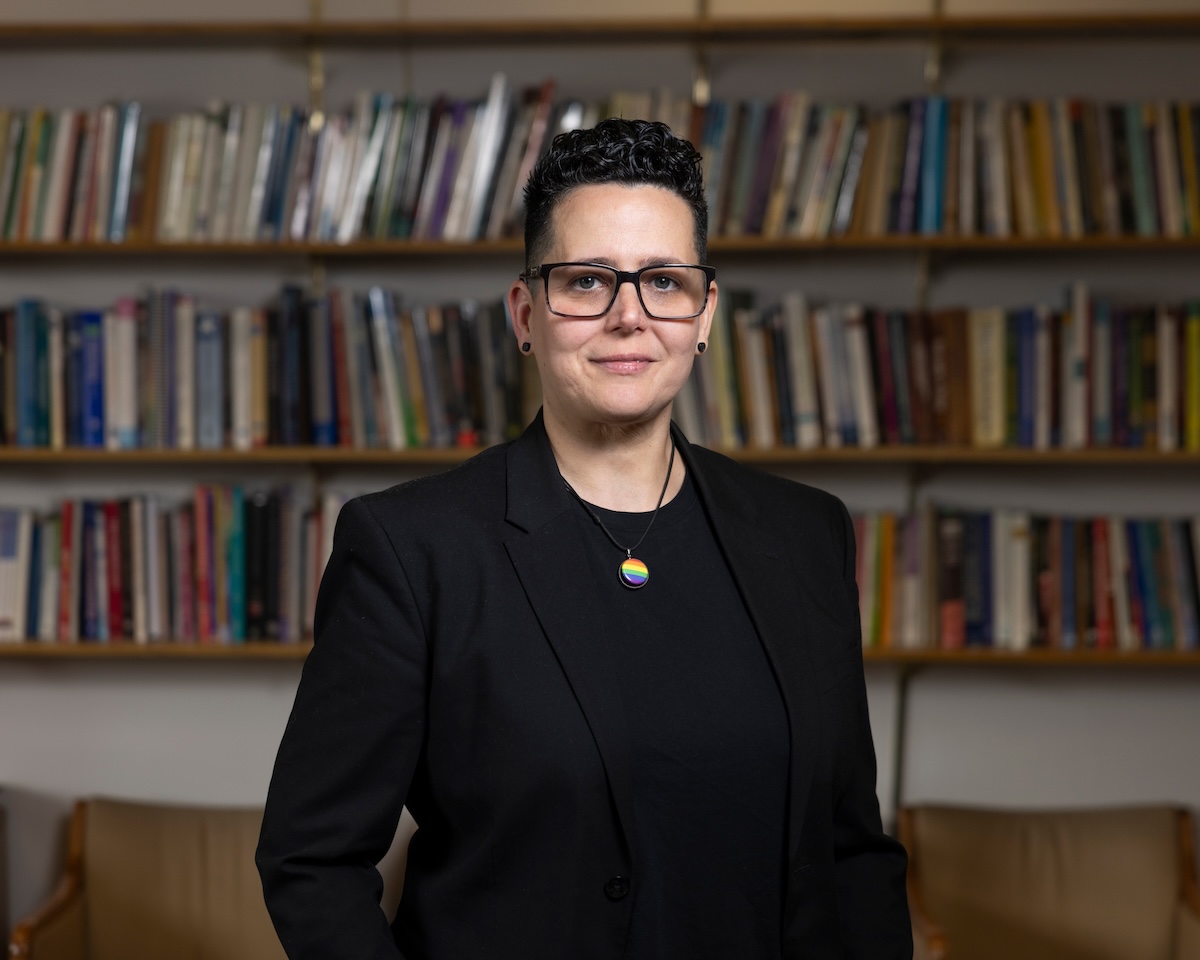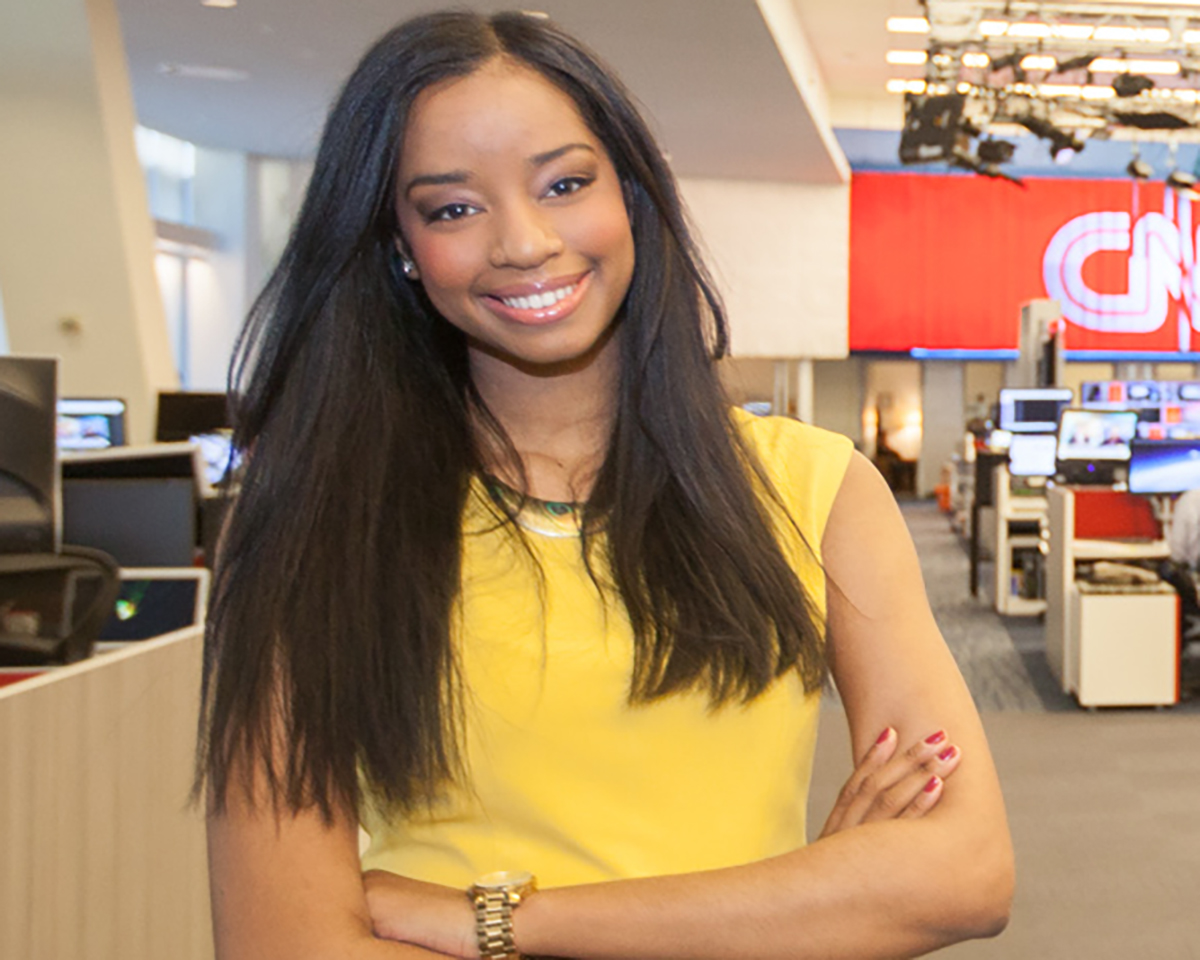School of Education Dean María Scharrón-del Río‘s roots in liberatory education run deep. As a child, their parents taught them to challenge the status quo and embrace the idea that everyone deserves equal access to a quality education. A professor in the School Psychology, Counseling, and Leadership Department since 2006, Scharrón-del Río believes that steady change on a systemic level can dismantle institutional oppression and create an inclusive environment. In this interview, the dean talks about what liberatory education looks like in action and the role Brooklyn College plays in preparing its student-teachers to meet today’s biggest challenges.
Tell us a bit about your background.
I was born and raised in Puerto Rico, did all of my schooling there, and earned my degrees, including my Ph.D., at the University of Puerto Rico, Río Piedras. My mother was an educator. She didn’t work as an educator in schools until later in life, but she was an educator at home from the beginning. She was very religious—our family was conservative—but my mother was shaped by liberation theology. That has been very much a part of my life since very early on: liberation theology and a socialist perspective. We all deserve access to benefits from the effort we put in as part of a larger society. My mother and father were avid readers and encouraged me to challenge the status quo. And I’m very grateful for that background. That allowed me to grasp everything I received in my university studies.
Your field, school counseling, and the need for more counselors in schools, particularly post-pandemic, have been widely reported in the media in recent years.
The profession has moved from the concept of “guidance” and addressing mostly the things that students need to excel academically, to one that addresses schools and students in a more systemic and holistic way. Today’s counselors look at a student’s sense of belonging and emotional well-being. We train our school counselors to be agents of change with the recognition that we are living in a system that is still oppressive to people from marginalized communities, in terms of race, ethnicity, sexual orientation, gender identity, and special needs.
Regarding special needs, Brooklyn College has a new undergraduate program.
Yes, it’s a dual certification degree, a B.S. in childhood education teacher (1–6) and special education (all grades). When students in the program graduate, they will be recommended for two certifications: childhood education (1-6) and special education (all grades). This is something that our faculty has been working on for a while. Special education in the United States remains an understaffed area—there are not enough qualified teachers to deliver services in the schools. Hopefully, this will make an impact in the community. Many of our teacher candidates are from Brooklyn and, after graduation, remain in Brooklyn to teach. And because our student body looks more like the New York City pre-kindergarten through grade 12 student population than current NYC DOE teachers, children, and their families will see teachers who look like them.
Inclusivity has long been a top priority at Brooklyn College.
It is an area that has always been part of the conversation at the School of Education. Our school is guided by four themes: collaboration, critical self-reflection, social justice, and diversity. We have a long-standing bilingual program that resulted from student activism. When the Puerto Rican and Latino Studies Department was formed, there was also a need for bilingual teachers, and students demanded the creation of a bilingual education program. As a faculty member and scholar, I have been committed to advocacy at the intersections, not only in terms of race, ethnicity, and language, but also in terms of sexual orientation and gender identity. There are committed faculty and staff who strive to make Brooklyn College and the School of Education a welcoming place to underrepresented and marginalized populations, including LGBTQ+ people, and I have seen that grow since I’ve been here.
What does it mean to have a liberatory approach to education?
A liberatory approach requires us to understand where we were, where we are, and the systems we still need to dismantle. We do this as part of our training of educators, counselors, and psychologists. We look at the areas in which we experience oppression as well as the areas in which we benefit from privilege. We look at our identity and who we are, not as one-sided, but multidimensional and intersectional. That mix creates our realities. We need to be aware of how systems of privilege and oppression show up in our institutions, in our lives, and the lives of people who are marginalized. This work can be uncomfortable. Some vocal groups across this country say that this discomfort is a good reason not to engage in this type of education. These groups claim that that students who become aware of their privilege feel uncomfortable, and they should not have to feel this way.
There is a contentious debate about what should and should not be taught and why.
Discomfort is necessary for growth. Interestingly, some groups talk about this type of instruction being divisive, yet, time and time again, I saw it bring connection to my classroom. Students connected with each other, yes, and they also were able to better connect to themselves. This is what choosing connection in the classroom truly is. To fight for this freedom to teach in this way is to fight for our ability to grow and connect in ways that inspire our solidarity across differences. Part of the beauty of this transformative learning is that once you acknowledge your privilege you have the power to be a voice and to use your privilege for change. Our faculty works to make sure that our students have access to the content and resources they need to succeed as educators and as leaders in the schools. This is important. They provide the content and resources to their students so that we can end educational and academic disparities and close gaps. In addition, our faculty also supports our students to develop the skills to engage in the difficult conversations needed to dismantle the systems that fuel those same disparities. And that’s how we want to engage with our students. That’s what brings all of our programs and faculty in the School of Education together.
Do you think we, as a nation, have made progress?
We are always progressing, even if we don’t progress at the rate we would like. We had a burst of advancements in some areas regarding how we were addressing conversations around race and violence in a way that brought visibility to the violence endured by many marginalized communities. And visibility is so important. We also have advanced in relation to LGBTQ rights and affirming diversity along gender and sexual orientation. But the pendulum has swung back, and we are seeing a lot of anti-trans bills in legislatures across the United States and books being banned in schools that are mostly around issues of, again, race, sexuality, and gender identity. It is so important that those of us in positions of privilege or power be more visible for those whose safety is impacted. When you have been involved in advocacy, keeping a perspective of hope is essential. It is a romantic mandate in a sense, but it is a mandate. Whoever is committed to doing this work, one of their primary mandates needs to be that of replenishing hope.



